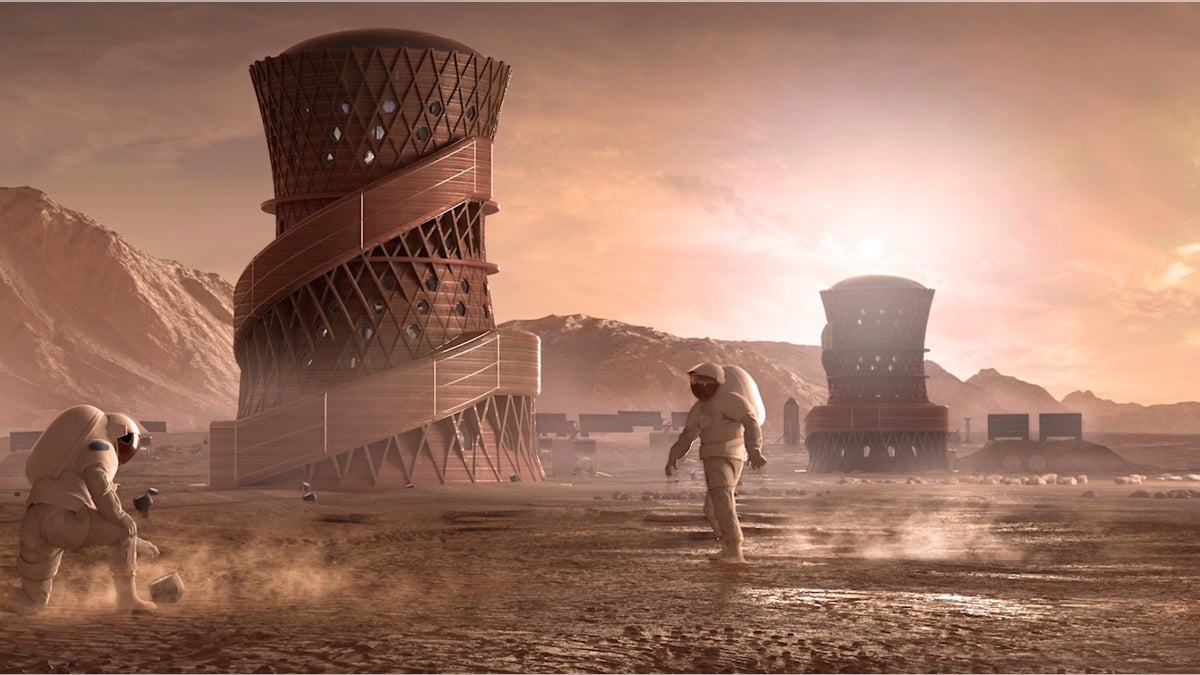
One of the winning teams of a NASA competition to make a full-scale Mars habitat using modeling software, Team SEArch+/Apis Cor, designed this Martian abode, which is built from the upper part of a Hercules Single-Stage Reusable Vehicle.
The first humans on Mars will quickly become too fragile to have sex with.
That's according to one scientist, who reckons colonists will warp into super-mutants who'll keel over the moment they sleep with an Earthling.
NASA is keen to land humans on Mars in the 2030s with an eye on setting up a permanent Martian colony.
Settlers will have to survive suffocating temperatures and deadly radiation – an experience that may strip them of their humanity altogether, says Rice University professor Scott Solomon.
He told Inverse that colonists' DNA will rapidly mutate to help them ride out Mars's brutal conditions.
Over time, they'll develop cancer-proof skin to survive the extra solar radiation, and denser bones to cope with Mars's low-gravity conditions.
On top of this, inhabitants will be exposed to almost none of the bacteria and viruses found on Earth, effectively nullifying their immune systems.
According to Professor Solomon, who is an evolutionary biologist at Rice, it will only take Mars colonists two generations to become super-mutants.
"Evolution is faster or slower depending on how much of an advantage there is to having a certain mutation," Professor Solomon says.
"If a mutation pops up for people living on Mars, and it gives them a 50-percent survival advantage, that’s a huge advantage, right? And that means that those individuals are going to be passing those genes on at a much higher rate than they otherwise would have."
He added that contact with humans may become deadly for Martians.
With no immune system, they'll quickly succumb to any illnesses or diseases carried by their human lovers.
These are all issues that Nasa will have to consider as it prepares to land man on the Moon by 2024, before heading to Mars in 2033.
The space agency is already pumping cash into research on the long-term effects of space travel.
One study in Germany has seen participants handed £14,000 to sit in bed and watch telly for two months.
Scientists are testing how prolonged periods of low-gravity during long-distance spaceflight affects the human body.
This story originally appeared in The Sun.




















